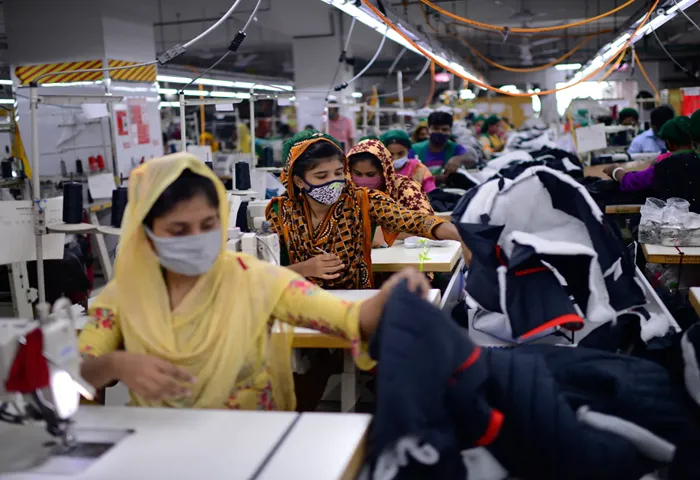International fashion brands are redirecting orders away from Bangladesh, the world’s second-largest garment exporter, following the political upheaval that led to the ousting of former Prime Minister Sheikh Hasina. According to industry sources, the unrest has raised concerns about violence and supply chain disruptions among global buyers.
The crisis erupted when Sheikh Hasina’s government launched a brutal crackdown on student protesters, triggering an uprising that ultimately led to her downfall last week. The unrest forced the closure of factories for several days, with some facilities owned by regime loyalists—supplying major brands like H&M and Zara—being set on fire in retaliatory attacks.
The violence, which claimed an estimated 500 lives, has caused significant delays in the production and delivery of clothing and footwear destined for the winter retail season in Europe and North America. To mitigate the impact, factories have resorted to costly measures, such as working overtime and shipping goods by air, a move that has eroded profit margins and exacerbated a backlog of orders stretching up to a month.
In response to the instability, several leading brands have shifted their orders for upcoming seasons to other Southeast Asian countries, such as Cambodia and Indonesia, disrupting established global supply chains and posing a serious threat to Bangladesh’s economy, which is heavily reliant on garment exports.
Mamun Rashid, an adviser to Bangladesh’s garment manufacturers, reported that factories had received calls from buyers in Spain and Germany, informing them that up to 40% of their orders would be diverted to other countries due to the uncertainty in Bangladesh. “They didn’t know how long this turmoil would continue,” Rashid said.
Syed Nasim Manzur, managing director of Apex Footwear, which supplies Decathlon and Uniqlo, echoed these concerns, stating that the upheaval has led to a significant loss of confidence among international brands. “Large groups are saying they’ll reduce their sourcing by 30% for the next season,” said Manzur, who also serves as president of Bangladesh’s leather goods and footwear exporter association. “We need to make sure that confidence is restored.”
As Bangladesh grapples with the fallout from the political crisis, the future of its garment industry—a crucial component of the country’s economic stability—hangs in the balance.
Related Topics:
How To Style Pleated Mini Skirt
How Should A Wool Coat Fit A Woman

